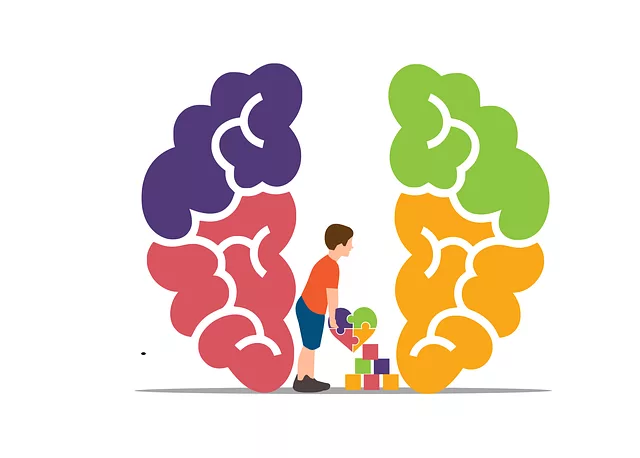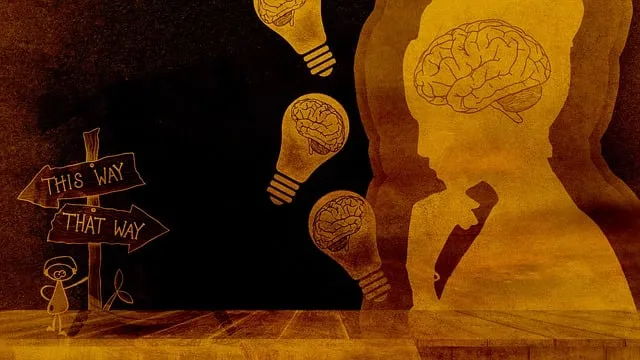The Colorado Springs Kaiser mental health programs tackle diagnostic complexity through holistic approaches, including self-awareness exercises, conflict resolution training, and public awareness campaigns. They leverage cutting-edge research, integrating emotional intelligence, social skills, and personalized care to enhance diagnosis accuracy. Innovative initiatives like Healthcare Provider Cultural Competency Training, Mindfulness Meditation, and Emotional Regulation practices, alongside AI and machine learning, ensure culturally sensitive diagnoses. These programs also promote self-care for healthcare professionals, fostering resilience and improving patient outcomes.
Mental illness diagnosis accuracy is a critical aspect of patient care, yet it remains a challenging domain. This article explores efforts to enhance diagnostic precision, focusing on innovative practices implemented by organizations like Colorado Springs Kaiser. We delve into their unique approach, examining programs and techniques that improve assessment methods. Additionally, we discuss the role of technology in increasing diagnostic reliability and emphasize the importance of training healthcare professionals. By understanding these initiatives, we can work towards better mental health outcomes.
- Understanding the Challenges of Mental Illness Diagnosis
- Colorado Springs Kaiser's Approach to Enhancing Accuracy
- Innovative Programs and Techniques for Better Assessment
- The Role of Technology in Improving Diagnostic Reliability
- Training and Education: Empowering Healthcare Professionals
Understanding the Challenges of Mental Illness Diagnosis

Diagnosing mental illnesses accurately can be a complex and multifaceted challenge, especially given the diverse nature of psychological conditions and individual experiences. In many cases, individuals may present with ambiguous symptoms, making it difficult for healthcare providers to pinpoint specific disorders. This complexity is further exacerbated by the fact that mental health issues often coexist, adding another layer of intricacy to diagnosis. For instance, a patient experiencing depression might also struggle with anxiety, requiring skilled assessment to differentiate between the two conditions.
Colorado Springs Kaiser mental health programs have recognized these challenges and implemented various initiatives to enhance diagnosis accuracy. One such approach involves encouraging self-awareness exercises, helping patients recognize their unique symptoms and patterns. Additionally, conflict resolution techniques training can empower individuals to communicate their experiences more effectively with healthcare providers, improving diagnostic clarity. Furthermore, the development of public awareness campaigns can play a significant role in educating both the public and medical professionals about mental health, breaking down stigma and promoting early intervention.
Colorado Springs Kaiser's Approach to Enhancing Accuracy

Colorado Springs Kaiser has pioneered innovative mental health programs aimed at significantly enhancing diagnosis accuracy. Their approach prioritizes a holistic understanding of patient experiences, integrating cutting-edge research with personalized care models. By fostering strong therapeutic relationships, healthcare professionals at Kaiser delve into the complex interplay between mental and physical health, utilizing evidence-based practices such as Emotional Intelligence and Social Skills Training to facilitate accurate assessments.
Through these initiatives, Colorado Springs Kaiser ensures that emotional healing processes are not just treated but integrated into the very fabric of patient care. This comprehensive strategy not only improves diagnosis accuracy but also enhances long-term patient outcomes, reflecting a genuine commitment to transforming lives through meticulous mental health programming.
Innovative Programs and Techniques for Better Assessment

In Colorado Springs, Kaiser Permanente has pioneered several innovative programs and techniques aimed at enhancing mental health assessment accuracy. One notable initiative is their comprehensive Healthcare Provider Cultural Competency Training, which equips medical professionals with the skills to understand and address the unique needs of diverse patient populations. This training promotes better communication and more nuanced diagnoses, especially in communities where cultural barriers might otherwise hinder access to quality care.
Additionally, Kaiser’s integration of Mindfulness Meditation and Emotional Regulation practices into their assessment protocols has shown promise in improving diagnostic accuracy. These techniques not only foster a deeper understanding of patients’ emotional states but also create a more calming environment, enabling individuals to express themselves openly and honestly. Such holistic approaches, combined with cutting-edge assessments, are revolutionizing mental health care in Colorado Springs and beyond, ensuring that diagnoses are not just accurate but also culturally sensitive and patient-centered.
The Role of Technology in Improving Diagnostic Reliability

In the realm of mental health diagnosis, technology emerges as a powerful ally in enhancing accuracy and reliability. The Colorado Springs Kaiser mental health programs have been at the forefront of this revolution, leveraging advanced tools to improve diagnostic processes. Through the integration of artificial intelligence (AI) algorithms and machine learning models, these programs can analyze vast amounts of patient data—including medical histories, symptoms, and behavioral patterns—to provide more precise evaluations. This approach not only reduces human error but also ensures a more holistic assessment, factoring in subtleties that might otherwise be overlooked.
Furthermore, digital platforms and mobile applications offer innovative solutions for ongoing monitoring and early intervention. By utilizing these tools, mental health professionals can track patient progress, identify exacerbating factors, and implement tailored Communication Strategies and Conflict Resolution Techniques. Such continuous support systems not only improve diagnostic reliability but also foster Mental Health Awareness, ultimately enhancing the quality of care provided by Colorado Springs Kaiser mental health programs.
Training and Education: Empowering Healthcare Professionals

In an effort to improve mental illness diagnosis accuracy, healthcare professionals in Colorado Springs are increasingly focusing on training and education. Programs like those offered by Kaiser Mental Health in Colorado Springs emphasize evidence-based practices that go beyond traditional diagnostic methods. These include Compassion Cultivation Practices, which foster understanding and empathy among caregivers, and Social Skills Training designed to enhance communication and interaction between patients and their support systems. By integrating such initiatives, healthcare providers are better equipped to recognize nuances and subtleties in patient presentations, leading to more precise diagnoses.
Furthermore, Self-Care Practices are being incorporated into training curricula to ensure that mental health professionals maintain their own well-being. This not only enhances their ability to care for others but also promotes a culture of resilience within the healthcare system. Through these comprehensive approaches, Colorado Springs Kaiser mental health programs aim to create a more compassionate and effective environment for both patients and caregivers, ultimately improving diagnosis accuracy and patient outcomes.
Mental illness diagnosis accuracy is a complex issue, but with dedicated efforts like those demonstrated by Colorado Springs Kaiser’s innovative programs, we can significantly enhance patient care. By combining advanced technology with comprehensive training and education, healthcare professionals can navigate the challenges of diagnosis more effectively. The strategies discussed, including improved assessment techniques and digital tools, offer promising paths toward higher diagnostic reliability. These initiatives, such as those at Colorado Springs Kaiser mental health programs, underscore the importance of continuous improvement in the field of mental health care.






